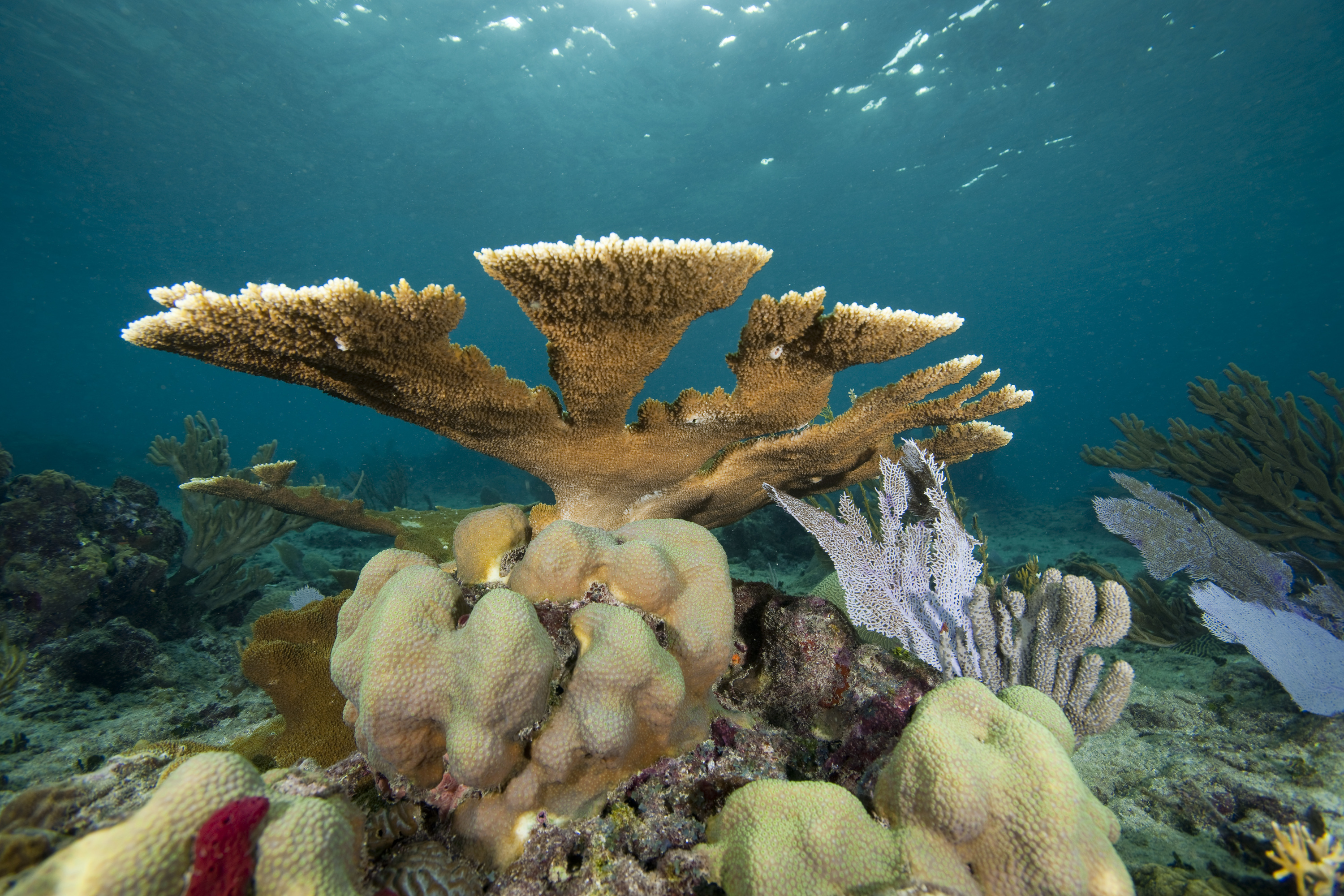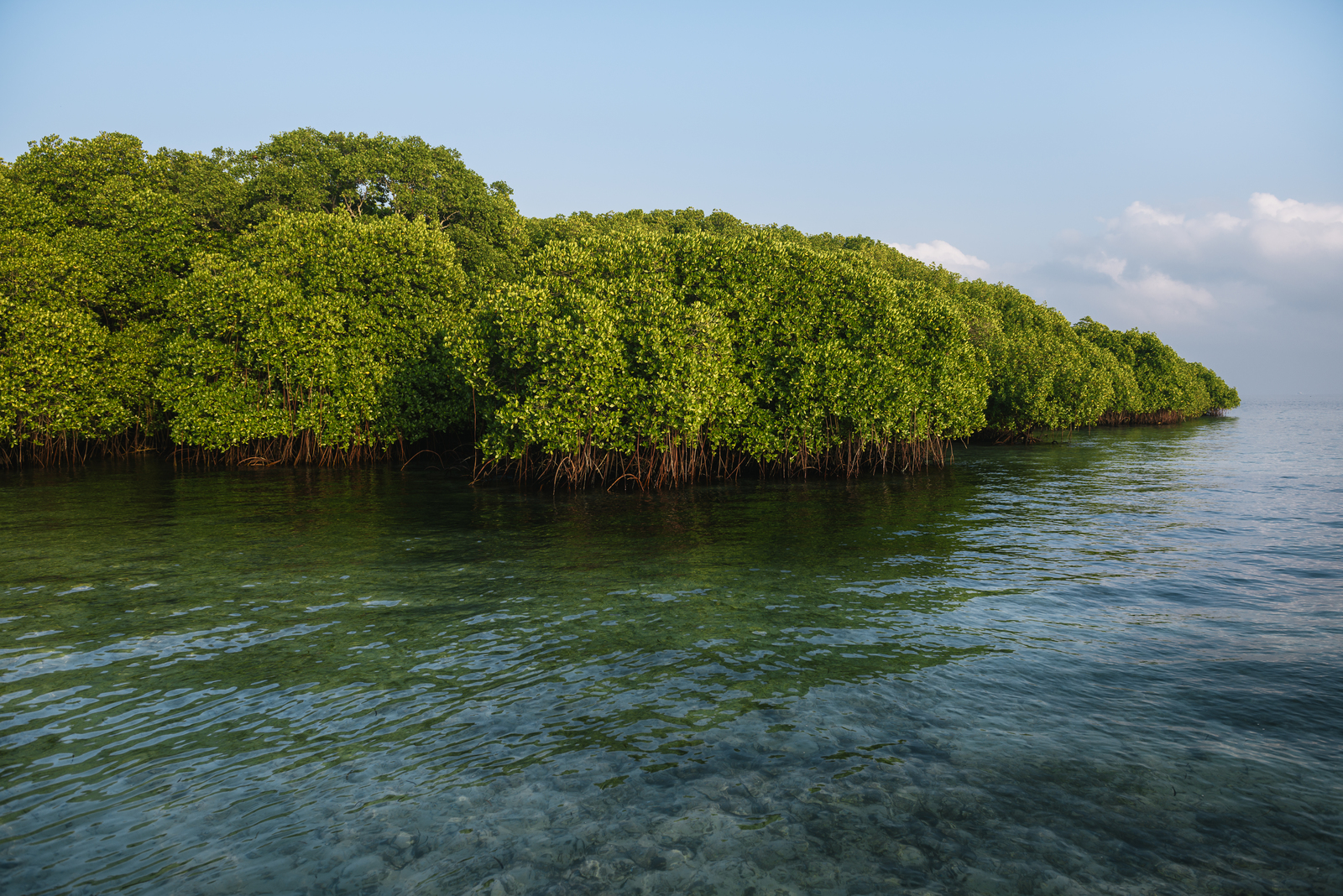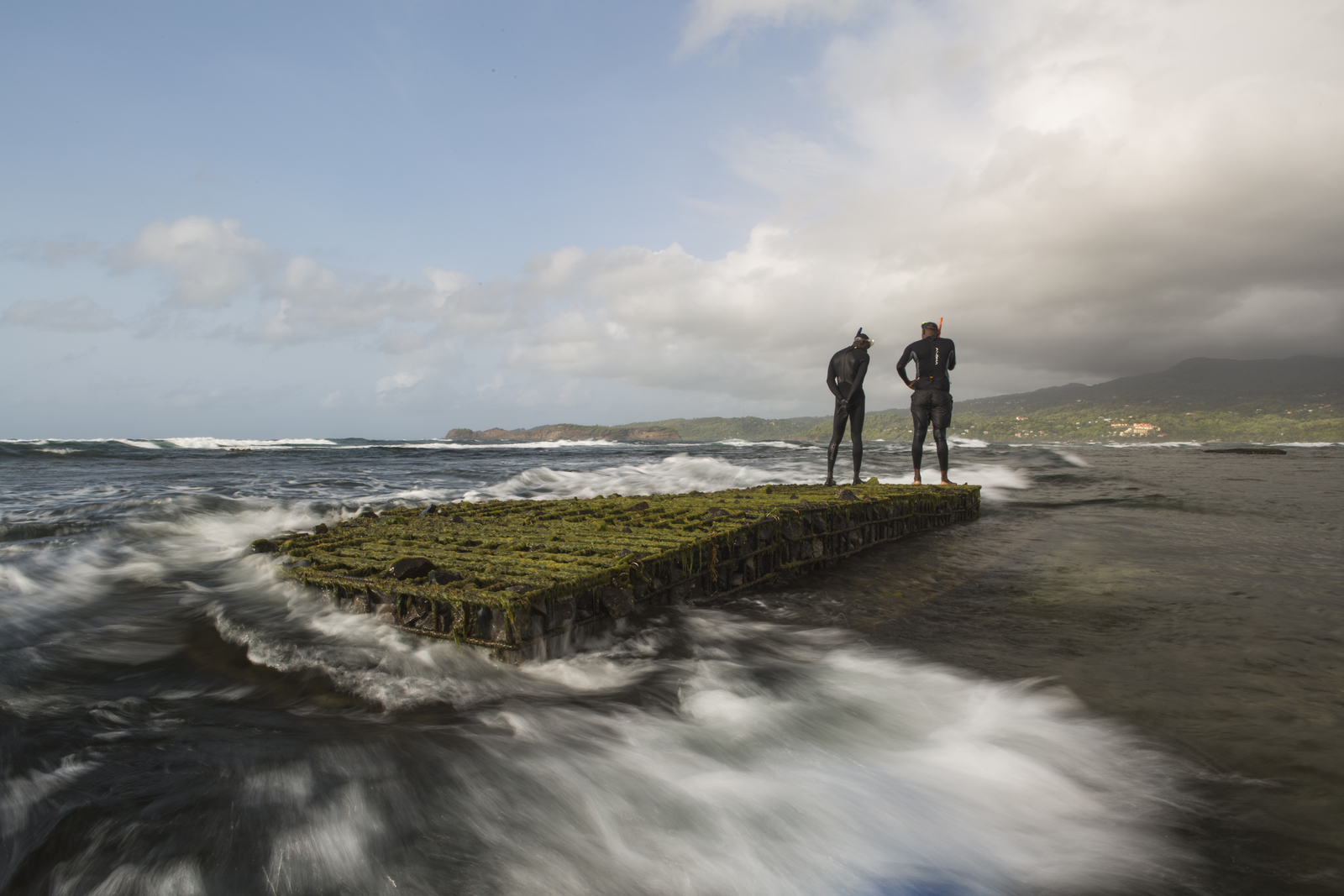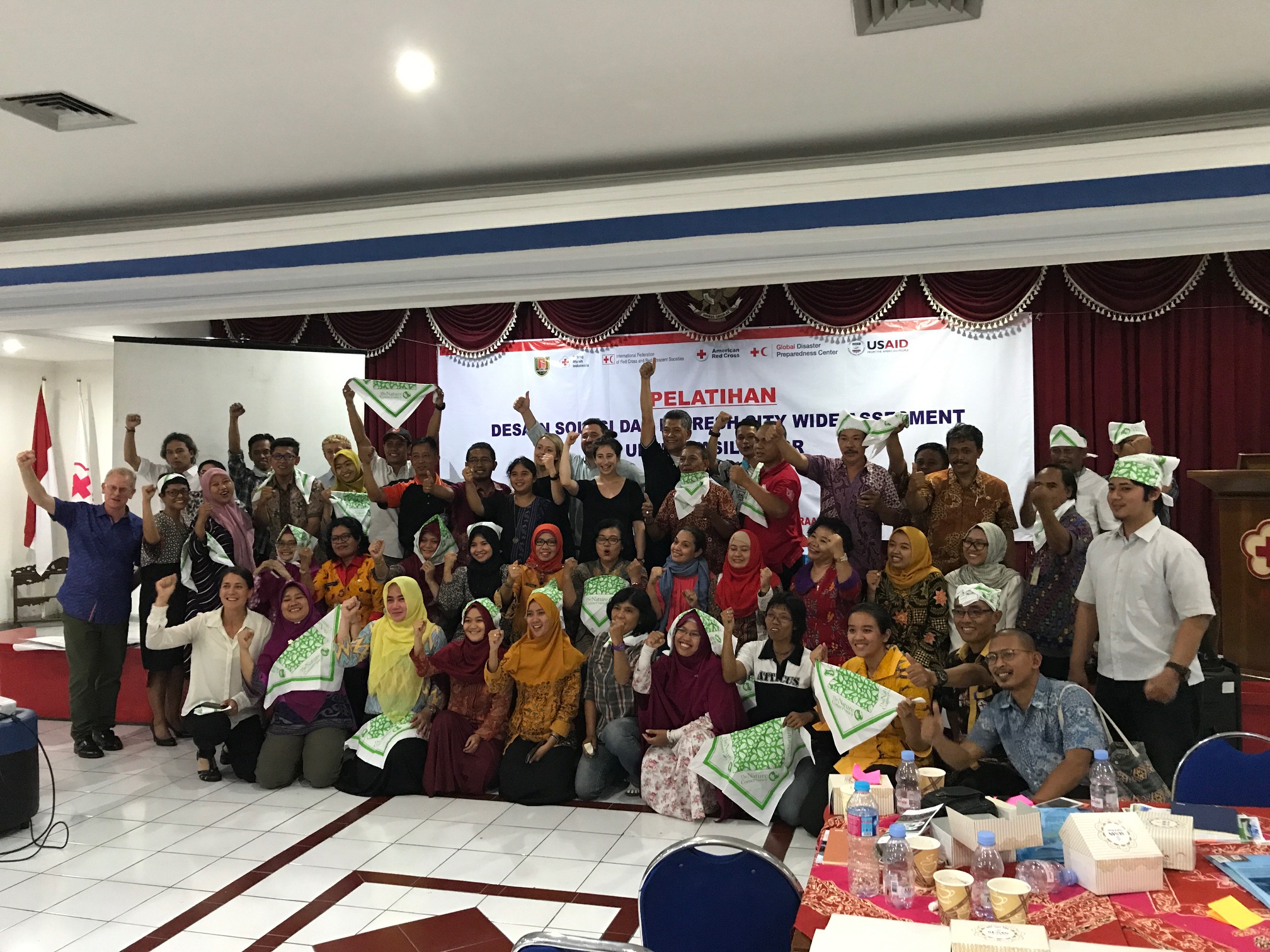Indonesia
Rapid coastal population growth combined with the impacts of a changing climate pose one of the world’s greatest threats continuing to result in a staggering loss of human life and property, as well as ecosystems and livelihoods. If not addressed, natural disasters and climate impacts will increase community vulnerability particularly for developing countries. It is imperative to find multi-disciplinary and cost-effective solutions that cut across development, adaptation, sustainability, and disaster risk reduction goals.
The Nature Conservancy (TNC) and the American Red Cross Global Disaster Preparedness Center (GDPC), as well as International Federation of Red Cross and National Societies, of the Red Cross Red Crescent, have formed a unique and innovative partnership joining the world’s largest conservation nonprofit with the world’s largest humanitarian organization to address the increasingly detrimental impacts from natural hazards. This partnership builds on the unique strengths of each organization, blending TNC’s experience in science-based ecosystem conservation and restoration, with the Red Cross’s experience in community mobilization, awareness raising and education. The goal of this partnership is to identify and advance collaborative activities that jointly build ecological and social solutions to increase the resilience of communities from natural disasters and climate impacts.


Resilient Coastal Cities in Indonesia
In October 2015, GDPC started a 5-year project supported by the U.S. Agency for International Development’s Office of U.S. Foreign Disaster Assistance (USAID/OFDA) to prototype approaches for coalition-building, addressing increasing risk in a set of coastal cities in South East Asia and the Pacific. The goal of Resilient Coastal Cities is to enhance local collaboration and problem solving to support effective climate change adaptation within the humanitarian cycle of preparedness, response, and recovery. To do this, community resilience approaches have been designed and implemented in specific coastal cities in Vanuatu, Indonesia and Myanmar.
This coalition-building process draws on the convening power of Red Cross community mobilization, engaging a wide set of interested stakeholders from local government, other civil society organizations, the private sector, academia, and community volunteers to identify locally developed solutions for resilience and climate change adaptation. The Nature Conservancy has joined efforts with GDPC in Indonesia to help identify ways that nature can be a part of building social-ecological community resilience before, during, and after natural disasters. TNC contributes the importance of nature conservation and geospatial technology to the dialogues. The Coastal Resilience approach and tools will provide city-specific ecosystem data that can assist and guide city level planners and community members to make informed decisions for appropriate nature-based adaptation solutions, or natural infrastructure, as a critical component of disaster risk reduction.
The Nature Conservancy has joined efforts with GDPC in the Coastal Cities project to help identify ways that nature can be a part of building social-ecological community resilience before, during, and after natural disasters. TNC contributes its legacy of nature conservation and habitat restoration, a robust conservation planning approach and innovative geospatial technology to the dialogues. City-specific ecosystem data assist and guide city level planners and community members to make informed decisions for appropriate nature-based adaptation solutions, or natural infrastructure, as a critical component of disaster risk reduction.

This GDPC-TNC collaboration builds on existing approaches to disaster risk reduction through community assessments, problem-solving, and outreach to households and small businesses, with a focus on considering nature and natural defenses for risk reduction. Demonstrating the value of natural systems in protecting social and economic community assets relies heavily on the adoption and buy-in of key stakeholders and governments. This begins through better integration and visualization of valuable ecosystems within cities. Improved management of these natural resources – including reefs, mangrove forests, fisheries and floodplains – will provide increased sources of sustainable food and income while protecting people and their livelihoods.
Social-Ecological Geospatial Framework
In collaboration with FloodTags, Peta Bencana, Wetlands International, Deltares, Esri, and GDPC, TNC has led the development of the geospatial framework for Resilient Coastal Cities.
The framework is designed to:
- Incorporate crowd-source social media data on flood events
- Build a communications campaign and user base around local flooding
- Utilize coastal engineering design parameters from Demak (west of Semarang on the north shore of Central Java)
- Simulate mangrove restoration scenarios
- Build a mobile app to integrate flood risk and mangrove restoration scenarios
- Deliver the framework, analysis and app to the coalition-building process in Indonesia






